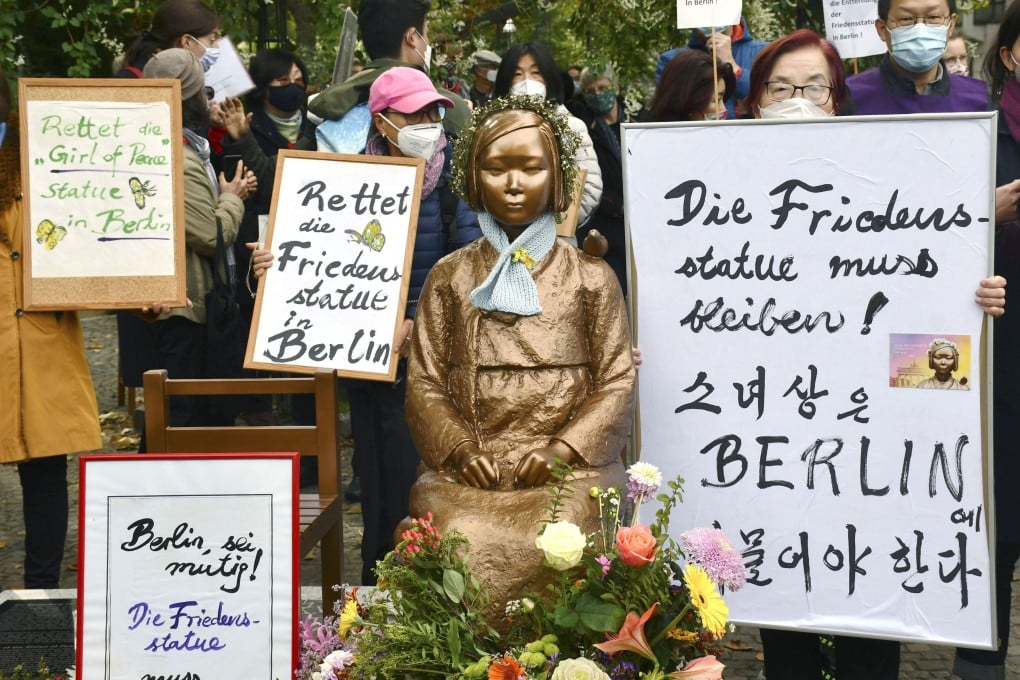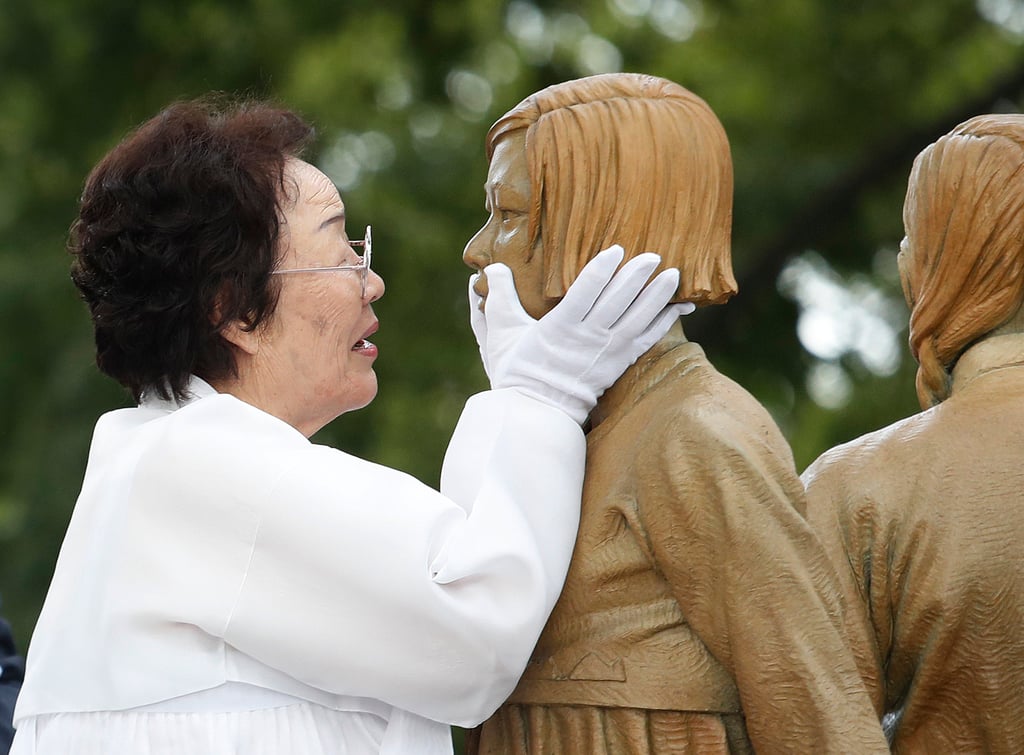Why is a South Korean fringe group backing Japan’s position on WWII ‘comfort women’?
- End Comfort Women Fraud group says there’s evidence of women signing contracts to work in brothels for Japanese military during colonial rule
- Four campaigners are heading to Berlin, wanting a comfort woman statue removed ‘to help improve South Korea-Japan relationship’ and other ties

They have been accused of being traitors, found guilty of defamation by courts, threatened online countless times and even assaulted in the street, but a group of South Korean activists and academics refuse to give in to the mainstream belief in their homeland on the issue of “comfort women”.
The group’s position runs contrary to the United Nations Special Rapporteur’s 1996 report on violence against women.
Nevertheless, the End Comfort Women Fraud civic organisation has united several smaller groups that perceive Korea’s history differently, including the Free Youth League, the Korean Society for Modern and Contemporary History and the National Enlightenment Movement Headquarters.

Around 40 people make up the core of the organisation, drawn from academia, politics and activism. And although the group is widely derided in domestic media as being ultra-rightist and revisionist, its members prefer to describe themselves as conservative.
